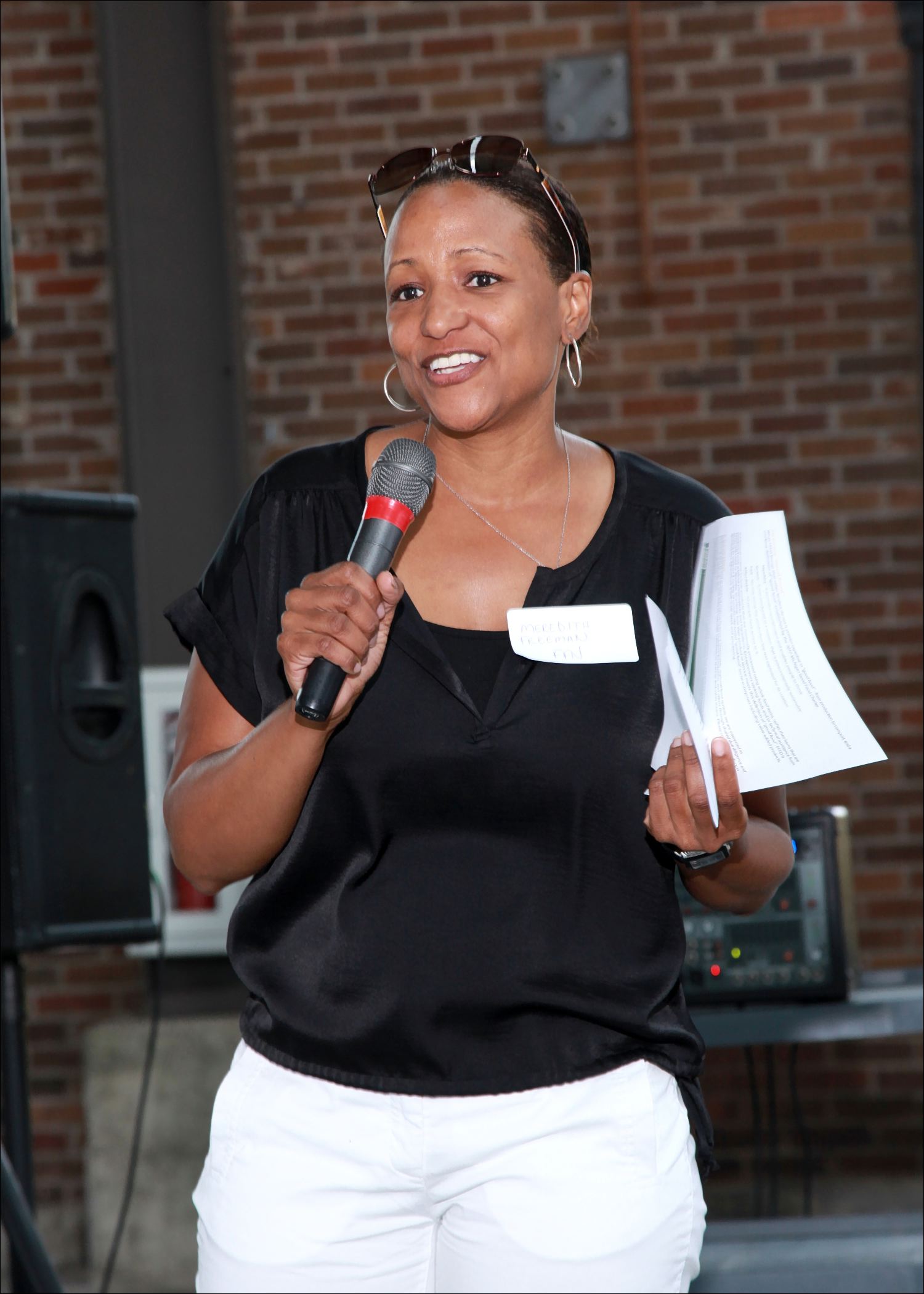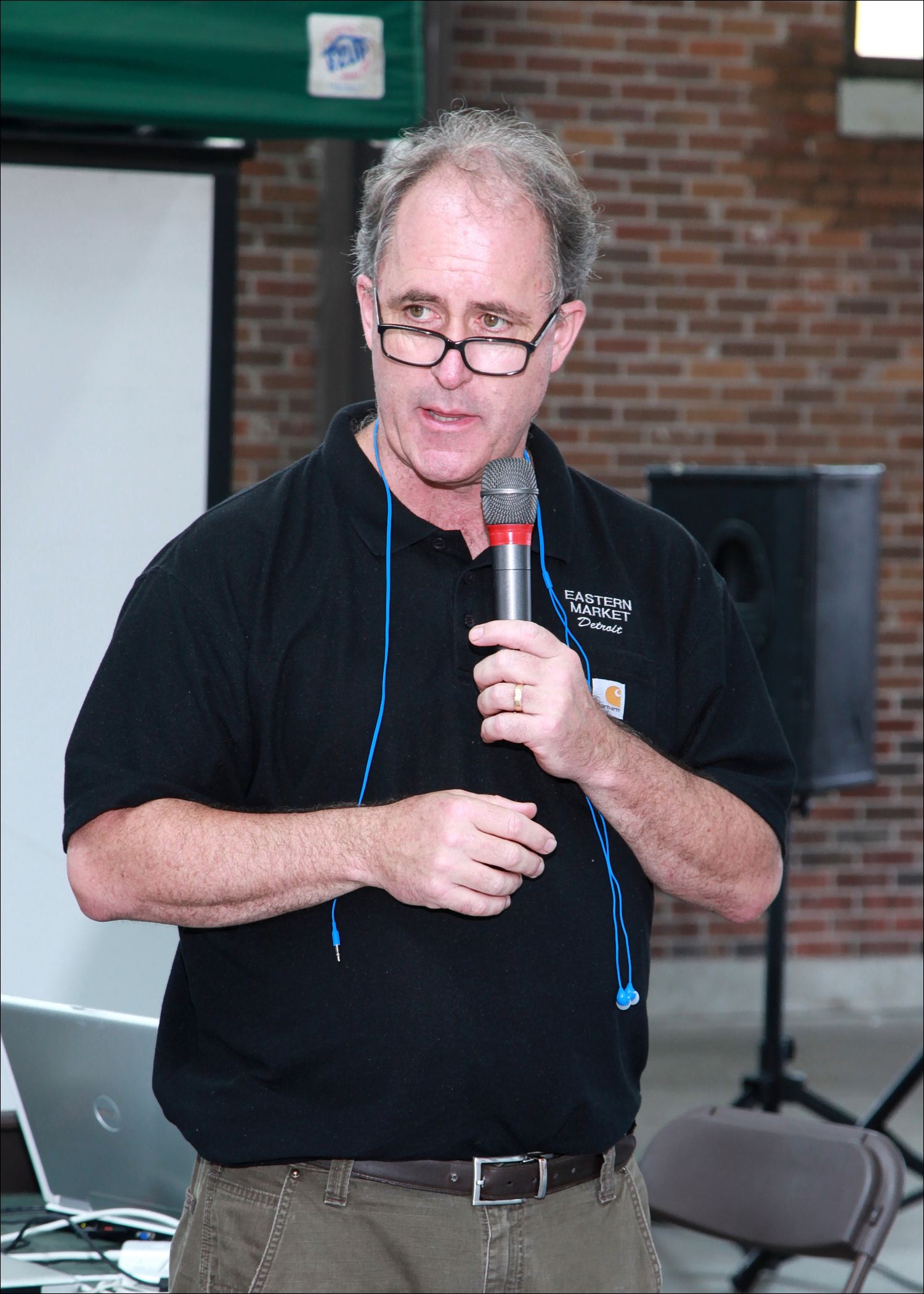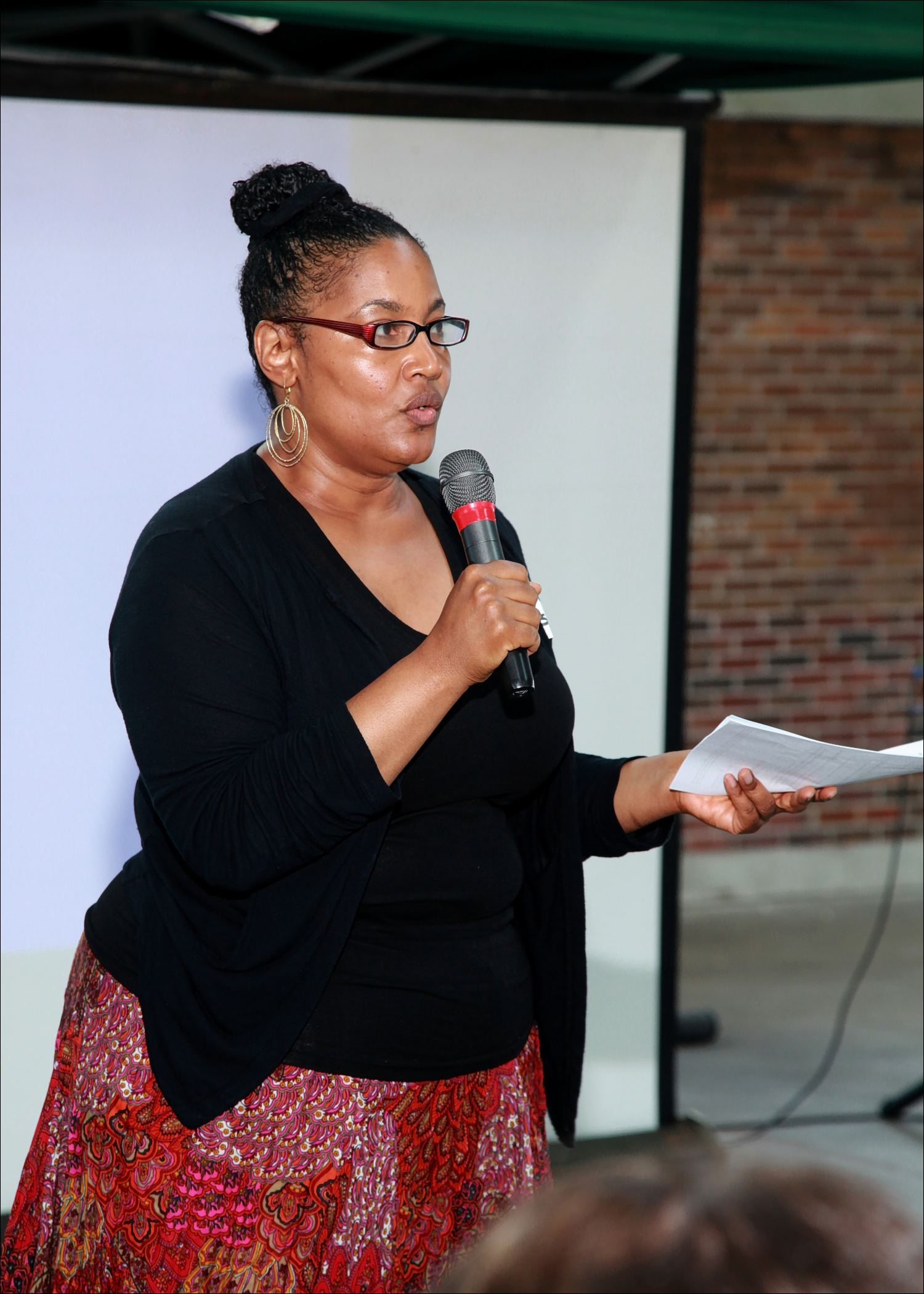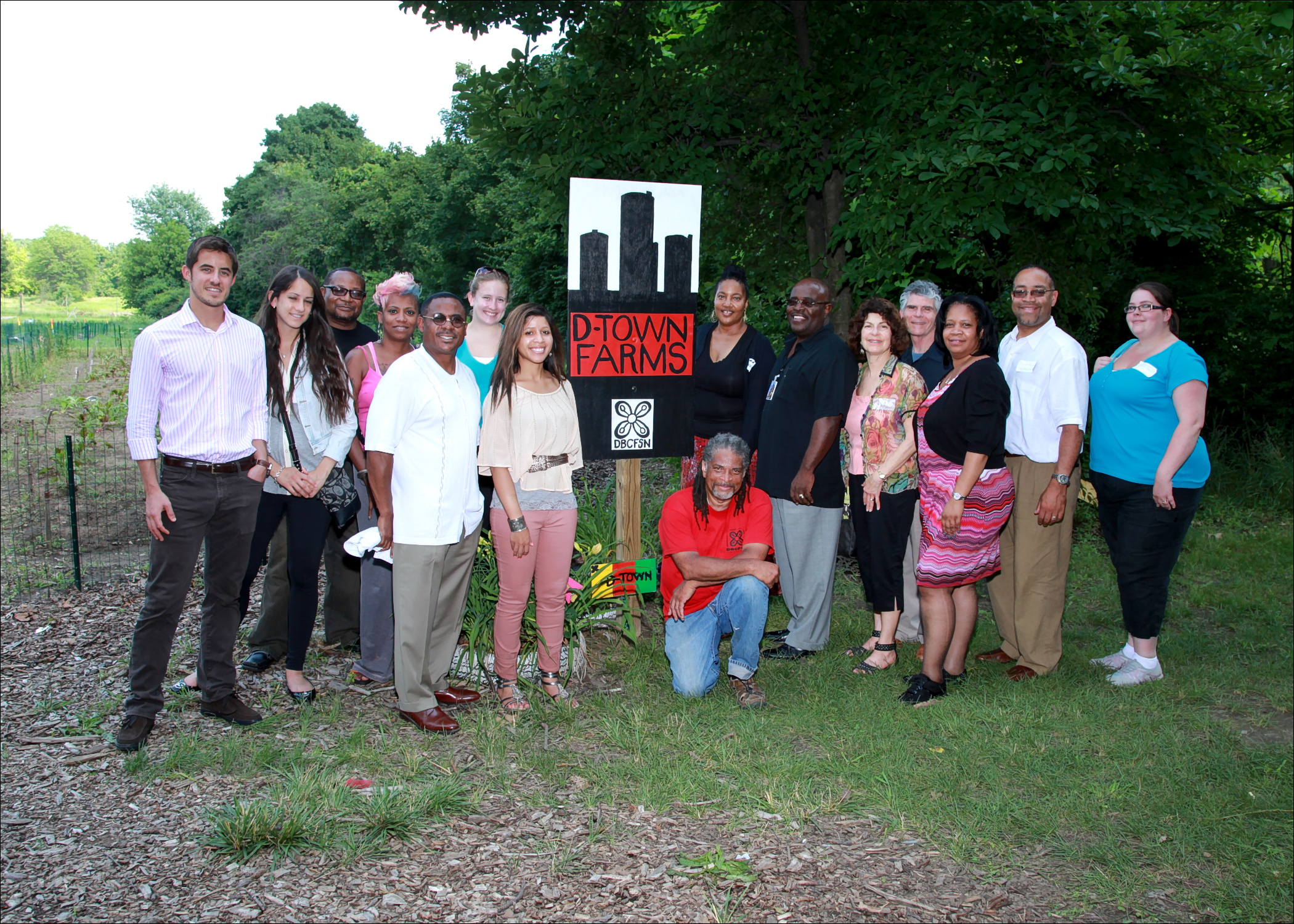Detroit Food Systems at Work
On a hot and humid Tuesday, July 9, Fair Food Network (FFN) hosted its inaugural Detroit Food System Bus Tour. This innovative event began at Detroit Eastern Market, where more than 15 of Detroit’s community, legislative, and healthcare leaders gathered. The main intent of the bus tour was to gain first-hand insight on how the food system operates in Detroit and how the participating projects are collaboratively creating access to affordable, healthy foods for Michigan families.
Terrence M. Hicks, Project Director of FFN’s Strengthening Detroit Voices (SDV) project, kicked off a stimulating panel presentation by screening the new SDV video, which outlines the current inequity in accessing affordable, healthy foods in Detroit. Featuring many Detroit leaders involved in the work of bringing about food systems change, the video also highlights the exciting new opportunities that are emerging to make a positive difference in the availability and affordability of fresh, healthy and locally grown fruits and vegetables for all Detroiters.
Dr. Oran Hesterman, President and CEO of Fair Food Network, offered some eye-opening data that strongly suggest the benefits a robust regional food system would bring to the Detroit economy. To much applause, Dr. Hesterman also announced the much-anticipated integration of the DUFB program into three independent grocery stores in Detroit starting July 1, the first such program in the country. The group was treated to FFN’s new animated video that explains how the Double Up Food Bucks program works in farmers’ markets and grocery stores.

Meredith Freeman, Director of FFN’s Detroit and Battle Creek programs
Building on the theme of an economic development agenda associated with efforts to improve healthy food access, Meredith Freeman, Project Director of FFN’s Detroit and Battle Creek programs, discussed the Fair Food Fund and the mini-loan opportunities on the horizon for “good food” businesses.
No gathering about agriculture and food issues would be complete without an update on the fate of the troubled Farm Bill in the U.S Congress. Lindsey Scalera, Grassroots Organizer at Michigan Voices for Good Food Policy unraveled some of the confusion about and obstacles involved in passage of the most recent version of the Farm Bill and its significance to Bridge card holders with SNAP benefits. More detailed information on this issue can be found on the FFN Blog.

Dan Carmody, Eastern Market Corporation
Dan Carmody, President and CEO of Eastern Market Corporation, expanded on the good works currently underway at Eastern Market and the success of the Tuesday and Saturday market days. Carmody generated interest from the participants as he discussed the Community Food Kitchen project, which provides access to commercial food preparation equipment for those businesses that otherwise don’t have the capital to purchase their own equipment. This initiative is proving to be of great value to start up food companies in Detroit.
Ponsella Hardaway, President of the Metropolitan Organizing Strategy Enabling Strength, (MOSES), closed out the introductory presentations by explaining how MOSES reaches thousands of Detroit residents with their message of advocacy, particularly in the area of food equity.

Ponsella Hardaway, MOSES
After these presentations, participants learned first-hand how a Bridge card holder can take advantage of the DUFB program at Eastern Market by walking through the bustling market with its many vendors offering fresh, seasonal fruits and vegetables harvested that very market day. The group stopped at the inviting Grown in Detroit stall, where a variety of local farmers offer their produce to customers interested in supporting local organic agriculture efforts.
Delighted with the market offerings, the group boarded the bus to Gleaners Food Community Bank of Southeastern Michigan. They were met at Gleaners by DeWayne Wells and Rachelle Bonelli, who provided an in-depth explanation of how Gleaners serves thousands in the tri-county area, provided a tour of the facility, and explained the policy work that they are accomplishing through the creation of a video diary that includes comments from those they serve.

Touring D-Town Farm
Our heat-weary participants then boarded the air-conditioned bus to the seven-acre D-Town Farm, located in the heart of Rouge Park in Detroit. During the 30-minute ride to D-Town Farm, Kwamena Mensah, Vice-President of the Detroit Black Community Food Security Network talked about the origins of the Network, the produce the farm sells to stores and schools, and how the land was acquired for D-Town. The group left the farm laden with gift bags of carrots, greens, and garlic shoots – no need to shop for the evening’s dinner!
As the tour demonstrated, the many on-the-ground efforts in Detroit are active and growing. Please be on the lookout for similar FFN-produced events in the near future!







